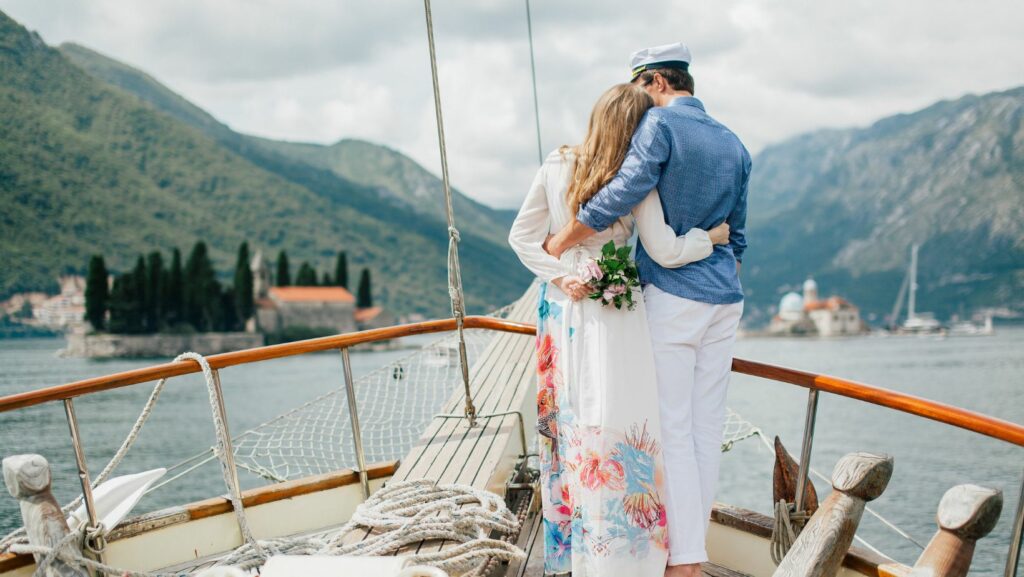What Is Lifestyle Travel
- Definition of Lifestyle Travel: A unique travel style focused on personal passions and immersive experiences that go beyond traditional tourism.
- Cultural Immersion: Engaging directly with local customs and traditions enhances understanding and appreciation of each destination’s authentic essence.

- Personal Interests Alignment: Tailoring travel activities to hobbies such as cooking, photography, or wellness creates personalized and fulfilling adventures.
- Sustainability Focus: Emphasizing eco-friendly practices and supporting local economies contributes positively to both the environment and the communities visited.
- Digital Nomad Trend: The rise of remote work allows travelers to blend professional life with exploration, creating opportunities for cultural immersion while maintaining careers.
- Flexibility and Spontaneity: Embracing unscheduled moments fosters unexpected discoveries and enriches the overall travel experience.
Lifestyle travel is more than just a trip; it’s a way of experiencing the world that blends personal passions with exploration. This approach to travel allows individuals to immerse themselves in local cultures, savor unique cuisines, and engage in activities that reflect their interests. Whether it’s photography, culinary experiences, or wellness retreats, lifestyle travel caters to those who seek deeper connections with their destinations.
As travelers increasingly prioritize meaningful experiences, lifestyle travel has gained popularity. It encourages people to step off the beaten path and discover the essence of a place. By embracing this travel style, they not only broaden their horizons but also create lasting memories that resonate long after the journey ends.
What Is Lifestyle Travel?
Lifestyle travel emphasizes personal connections and immersive experiences with various cultures. It involves engaging in activities aligned with individual passions, such as culinary exploration, adventure sports, or wellness retreats. This travel style encourages participants to seek authenticity, often moving beyond standard tourist attractions.
Travelers pursuing lifestyle experiences enjoy unique offerings specific to destinations. For instance, they might take cooking classes in Italy, join local festivals in Thailand, or explore art workshops in France. Such interactions provide firsthand knowledge of customs and traditions.
Lifestyle travel also fosters meaningful relationships with locals. Engaging in conversation with community members, sharing meals, or participating in local events enhances understanding of diverse perspectives. This approach not only enriches the travel experience but also promotes cultural exchange.
Ultimately, lifestyle travel highlights the importance of personal interests in shaping adventures. By aligning travel activities with passions, travelers create unforgettable memories and deepen their appreciation of the world.
The Essence of Lifestyle Travel
Lifestyle travel promotes personal immersion in unique experiences, allowing travelers to connect authentically with local cultures. This approach emphasizes enjoyment and exploration tailored to individual interests.
Definition and Background
Lifestyle travel involves a method of traveling that focuses on unique experiences rather than traditional tourism. This concept emerged as travelers sought deeper connections with locations beyond typical destination highlights. Those who embrace this style aim to discover a place’s essence through its culture, cuisine, and activities. For example, engaging in volunteer work or participating in local traditions fosters a more profound understanding of each destination.
- Cultural Immersion: Engaging with local customs and traditions enhances the travel experience.
- Personal Interests: Aligning travel activities with hobbies—such as photography, cooking, or wellness—creates tailored adventures.
- Authentic Experiences: Prioritizing interactions with locals reinforces the genuine nature of the journey.
- Unique Accommodations: Choosing stays that reflect local culture, such as boutique hotels or homestays, deepens the connection.
- Sustainable Practices: Supporting local businesses and opting for eco-friendly activities contribute positively to destinations.
- Flexibility and Spontaneity: Embracing unscheduled moments encourages serendipitous opportunities for exploration.
These characteristics collectively define a travel style that enriches understanding, encourages personal growth, and fosters lasting memories.
Popular Lifestyle Travel Trends
Lifestyle travel incorporates diverse trends, enhancing the travel experience. Two prominent trends emerging in this realm are the digital nomad lifestyle and sustainable travel practices.
Digital Nomad Lifestyle
The digital nomad lifestyle connects work and travel, allowing individuals to maintain careers while exploring new locations. Travelers often leverage technology, utilizing laptops and Wi-Fi to work remotely from cafes, co-working spaces, or unique accommodations. Popular destinations for digital nomads, such as Bali, Thailand, and Portugal, offer vibrant communities and supportive infrastructures. Key elements of this trend include networking opportunities with like-minded individuals, skill-sharing workshops, and access to local events. This lifestyle fosters a blend of professional growth and cultural immersion, enriching both personal and work experiences.
Sustainable Travel Practices
Sustainable travel practices focus on minimizing the environmental impact of tourism while supporting local communities. Travelers actively seek eco-friendly accommodations, participate in responsible tours, and support local businesses. Common practices include using public transportation, reducing plastic consumption, and choosing plant-based dining options. Engaging in volunteer opportunities or conservation efforts helps travelers give back to the communities they visit. Popular sustainable destinations, such as Costa Rica and Iceland, prioritize eco-friendly initiatives, appealing to environmentally conscious travelers. Embracing these practices promotes authentic interactions and contributes to the preservation of cultural and natural resources, enhancing the overall travel experience.
Benefits of Lifestyle Travel
Lifestyle travel offers numerous advantages, enhancing the travel experience through deeper connections and unique opportunities that align with personal passions.
Cultural Immersion
Cultural immersion forms a crucial aspect of lifestyle travel. Travelers engage directly with local traditions, art, and languages, which fosters a richer understanding of each destination. Through activities such as local cooking classes, artisan workshops, or community festivals, individuals gain insights that typical tourist experiences often overlook. For instance, participating in a traditional dance in Bali or learning to make paella in Spain allows for authentic interactions that cultivate appreciation for the local way of life.
Personal Growth and Fulfillment
Personal growth and fulfillment significantly enhance lifestyle travel experiences. Individuals often confront their comfort zones, whether through adventure sports, solo travel, or engaging in unfamiliar cultural practices. Such challenges lead to increased self-confidence and resilience. Additionally, travelers pursuing their interests—like photography or wellness—often find deeper satisfaction in their journeys, crafting meaningful narratives and achieving personal goals. Exploring a new city with a focus on art, for example, can inspire creativity and foster a lasting connection to the journey’s essence.
Challenges of Lifestyle Travel
Lifestyle travel presents unique challenges that can impact the overall experience. Factors such as planning, logistics, and the balance between work and exploration require careful consideration.
Planning and Logistics
Planning lifestyle travel involves intricate coordination and attention to detail. Travelers must manage accommodations, transportation, and activities aligned with their preferences. Unpredictable factors, like booking availability or local events, may complicate arrangements. It’s essential to remain flexible and adaptable when plans change or unexpected circumstances arise. Utilizing travel apps and resources helps streamline logistics, ensuring a smoother experience while exploring new destinations.
Balancing Work and Exploration
 Balancing work and exploration poses a significant challenge for digital nomads and lifestyle travelers. Professionals who travel while working face the pressure to meet deadlines and maintain productivity amidst distractions. Setting boundaries and establishing a routine becomes crucial in achieving this balance. Utilizing co-working spaces can provide focused work environments, allowing for efficient productivity. Allocating specific times for work and exploration helps travelers engage with local cultures while managing their professional responsibilities effectively.
Balancing work and exploration poses a significant challenge for digital nomads and lifestyle travelers. Professionals who travel while working face the pressure to meet deadlines and maintain productivity amidst distractions. Setting boundaries and establishing a routine becomes crucial in achieving this balance. Utilizing co-working spaces can provide focused work environments, allowing for efficient productivity. Allocating specific times for work and exploration helps travelers engage with local cultures while managing their professional responsibilities effectively.
Connections and Authentic Experiences
Lifestyle travel offers a refreshing approach that prioritizes personal connections and authentic experiences. By immersing themselves in local cultures and engaging in activities that resonate with their passions, travelers create lasting memories and deepen their understanding of the world. This trend not only enriches individual journeys but also fosters a sense of responsibility towards sustainable practices and community support.
As the landscape of travel continues to evolve, embracing lifestyle travel allows individuals to break free from conventional tourism and discover the true essence of their destinations. Whether through culinary adventures or cultural festivals, the opportunities for meaningful exploration are endless.



